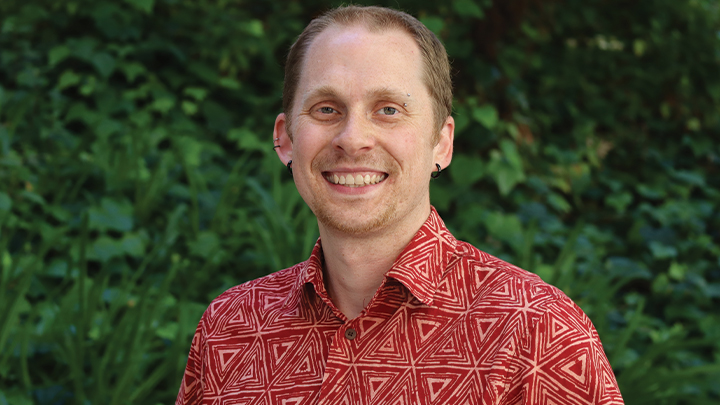SDSU professor recognized for research that promotes equity in STEM education
Daniel Reinholz receives award from the Mathematical Association of America for research in undergraduate math education

The Mathematical Association of America (MAA) has awarded San Diego State University mathematics professor Daniel Reinholz the 2024 Annie and John Selden Prize. The award, which has been around for 20 years, celebrates Reinholz for publishing an impressive body of research in undergraduate mathematics education, as well as for adopting innovative strategies for promoting equity in classroom settings.
"I am humbled and honored to receive this recognition,” Reinholz said. “To me, this accomplishment speaks to the dedication and resilience of our community. We are committed to improving mathematics education so that more students can experience the joy, beauty, and wonder of our discipline.”
One way Reinholz’s research approaches have addressed racial and gender inequities in classroom participation is the free, open source Equity QUantified In Participation (EQUIP) classroom observation tool.
Co-created with University of Washington associate professor Niral Shah, EQUIP identifies patterns in student participation, taking into account teaching methods and social markers such as race and gender. The tool then generates instant analytics highlighting subtle classroom inequities, which teachers can use to improve their practices. This customizable platform is used by more than 3,000 researchers and educators, from primary schools to universities.
Reinholz is a faculty member of SDSU’s Center for Research in Mathematics and Science Education (CRMSE) and, last fall published the book, “Equitable and Engaging Mathematics Teaching: A Guide to Disrupting Hierarchies in the Classroom” (2023, MAA Press).
“The moment the book was released into the public, it became clear to me that it has the potential to make an impact in a very different way than writing journal articles,” Reinholz said. “It has been a joy to see how others are using it and how it is opening up conversations around equitable mathematics that otherwise might not arise.”
The book further exemplifies Reinholz’s advocacy of equity in STEM education and culminates decades of mathematics education research and ideas. The book is available for purchase as a hard copy on Amazon.



